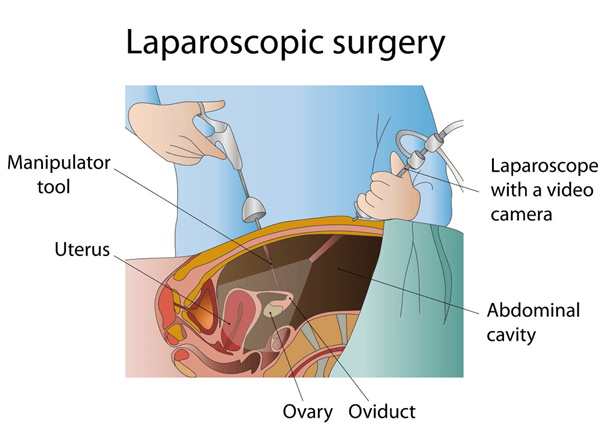Laparoscopic Surgery in India
Dr. Hrishikesh Pai is one of the top IVF doctor in India who is instrumental in changing the country’s fertility treatment. In his 40+ years of clinical practice, he has pioneered several innovations and developments in this field.
Also, he is an expert in laparoscopic surgery in India. He uses this advanced technique to diagnose or treat many fertility issues.
Dr. Hrishikesh Pai is the Founder and Director of one of the best IVF centre in India, Bloom IVF Group.

What is laparoscopy?
Laparoscopy is a minimally invasive surgical procedure that helps the doctors examine the internal organs using an instrument with a camera and light attached to its end. Laparoscopic surgery can be simultaneously used as a diagnostic as well as corrective procedure in infertility treatment.laparoscopic surgery
Dr. Hrishikesh Pai, one of the best IVFdoctor in Mumbai, uses laparoscopyto identify infertility factors difficult to diagnose by routine investigations. One such condition is genitaltuberculosis,which is so common in our country. It can cause infertility. Laparoscopy helps detect it easily. Treating it with antitubercular drugscan improve its outcome.
CONTACT US FOR MORE INFORMATION OR BOOK AN APPOINTMENT
Why is gynecologic laparoscopy used?
We at Bloom IVF, a trusted and one of the leading IVF centre in Mumbai, use laparoscopy to diagnose unexplained infertility, unexplained pelvic pain, and recurrent pelvic infection
Conditions diagnosed using laparoscopy are:
- Uterine fibroids
- Endometriosis
- Ectopic pregnancy
- Infertility
- Ovarian tumors or cysts
- Reproductive cancers
- Pelvic inflammatory disease
- Pelvic adhesions, or painful scar tissue
- Pelvic pus, or abscess
Types of laparoscopic treatments
At Bloom IVF, we use laparoscopic surgery in Mumbai and across India to treat the following causes of female infertility:
- Hydrosalpinx is a condition where the fallopian tube is blocked with watery fluids. Removing or disconnecting the affected tube can improve the success rate of IVF.
- Repair or unblock a fallopian tube with laparoscopic surgery. It increases the chances of conceiving. However, if IVF is required, then undergoing IVF straightaway is a better choice. Our doctor may recommend surgical repair if the woman is young and all other fertility factors are proper.
- The doctor may remove an ovarian cyst (endometrioma) causing pain or blocking the fallopian tubes. In some cases, draining the cyst with an ultrasound-guided needle is a better option.
- You may need surgery if multiple fibroids block your fallopian tubes, distort the uterus cavity, or are causing pain.
- Dr. Hrishikesh Pai may recommend ovarian drilling for your PCOS. During laparoscopic ovarian drilling, he will make few tiny punctures into the ovaries. This will help you ovulate on your own.
Why is laparoscopy needed?
Some causes of infertility can only be diagnosed with the help of laparoscopy, such as endometriosis. Laparoscopy allows the doctor to examine the inside of your abdomen and biopsy suspicious growths or cysts.
Further, laparoscopic surgery can treat some causes of infertility, increasing the chance of getting pregnant either naturally or with fertility treatments.
Laparoscopic surgery can also be used to remove fibroids, scar tissues, or endometrial deposits that are causing pain.
How is laparoscopic surgery done?
Mostly, laparoscopic surgery is performed under general anesthesia.
Once you are asleep, our doctor will use a small needle to fill your abdomen with carbon dioxide gas. It keeps the abdominal wall away from your organs, reducing the risk of injury, and provides room for the surgeon to move the surgical instruments.
Our doctor will make a tiny incision in your navel and insert the laparoscope, which transmits images to a screen. It gives the doctor a clear view of your organs.
The surgeon will proceed depending on the type of procedure you need. For diagnosis, he might examine the inside of your abdomen. If surgery is necessary, the doctor will make other small cuts. He will pass the instruments through these holes.Our fertility specialist will perform the surgery using the laparoscope as a guide. After the procedure, the incisions are sutured.
CONTACT US FOR MORE INFORMATION OR BOOK AN APPOINTMENT
Risks of laparoscopy
Common side effects of the laparoscopic procedure are skin irritation and bladder infection.
Serious complications though rare, include:
- Nerve damage
- Damage to the uterus, bladder, bowel, or other pelvic structures
- Blood clots
- Allergic reactions
- Adhesions
- Problems with urinating
You are at more risk of complications if:
- You had previous abdominal surgery
- Are obese
- Are very thin
- Have extreme endometriosis
- Suffer from pelvic infection
- Have chronic bowel disease
You should contact your doctor immediately if you experience:
- Severe or worsening abdominal pain
- Have a fever of 1010F or higher
- There is bleeding or pus is oozing out of the surgical site
- Prolonged nausea and vomiting
Frequently Asked Questions
What are the benefits of gynecological laparoscopic surgery?
The smaller incisions are less painful . That’s why there is a decreased need for pain medication, shorter recovery time, and better cosmetic results. There is also less internal scarring, less chance of infection, and early return to work.
What should I do if I have vaginal bleeding after gynecological laparoscopic surgery?
You may experience some light vaginal spotting or bleeding,which may continue for several weeks after your gynecological laparoscopic surgery. Occasionally you may experience heavy bleeding when you stand up or after urinating. If heavy bleeding continues, you should immediately contact your surgeon.
Will I be able to get pregnant after laparoscopic endometriosis surgery?
Early laparoscopic surgical treatment for endometriosis increases your ability to become pregnant.
